Amid a flurry of changes for the City of Springfield’s Department of Workforce Development, the future of the department’s relationship with the Ozark Region Workforce Development Board is in question.
The Council of Local Elected Officials (CLEO) oversees workforce development initiatives in partnership with the workforce board. CLEO voted to remove the City of Springfield as the organization’s fiscal agent in a June 7 meeting.
As fiscal agent, the Springfield Finance Department manages grant funds provided by the U.S. Department of Labor through the Workforce Innovation and Opportunity Act, or WIOA.
The decision made at the recommendation of the workforce board was largely related to communication lapses between the city government and the workforce board, including the “short window of notice” provided to the board of the city’s plans to relocate the Missouri Job Center.
City Manager Jason Gage acknowledged that the city government can do “much better” communicating and coordinating with the board, but warned that removing the city as fiscal agent could further sever the city’s relationship with the board.

“I think that's why right now, we need to look at how big a deal this really is, and how much impact there is,” Gage said at the June 7 meeting. “Because if at some point, we're not a part of this, or part of the overall scheme, that's fine — I mean, we have so many other things to do, that's fine. But we'll be out of it, we'll deconstruct our piece.
“So once there's a step out into the wilderness, there's no safety net there left. If there's dislike or something doesn't work right with whatever future option might be out there, we're not going to be able to help because we're not going to have our system put together anymore.”
Board, CLEO oversees $2 million in services through City of Springfield
The workforce development system has undergone a variety of changes in recent years, with the current structure largely adopted under the WIOA, which established local workforce development boards.
The Missouri Office of Workforce Development, a division of the Missouri Department of Higher Education and Workforce Development, administers WIOA by providing staff support, policy guidance and funds to local boards.
The Ozark Region — which includes Greene, Christian, Taney, Stone, Webster, Dallas and Polk counties — is one of 14 regions in Missouri. It operates job centers in Springfield and Branson.
The workforce board, which operates as a nonprofit, is required to have a minimum of 23 members, though there are currently some open seats. The CLEO is comprised of presiding commissioners from the seven counties, and chaired by Greene County Presiding Commissioner Bob Dixon.
The City of Springfield has provided workforce development services in various forms since 1974, according to Ericka Schmeeckle, interim director of Workforce Development, and began operating under WIOA in 2015.

As the designated service provider for WIOA programs in the Ozark Region, Springfield’s Department of Workforce Development operates under the guidance of the board and CLEO, though the 46-employee department does additional work independent of the nonprofit.
The department administers about $26 million in grant programs, with WIOA-related services making up about $2 million of that, according to Schmeeckle. The department helps administer the WIOA Adult and Dislocated Worker Program and youth programs. Springfield also serves as the one-stop operator for WIOA programs and provides fiscal services through the city’s Finance Department.
Of the 2023-24 Ozark Region WIOA budget, $19,446 was earmarked for board expenses, with the remaining $174,409 utilized by the city for administrative services.
Gage likened the city’s relationship with the board to a 50-year marriage, arguing that a lapse in communication was no reason to end it, and suggested the state could help the city and board work through the issues at hand.
Board recommendation stems from ‘introspective assessment‘
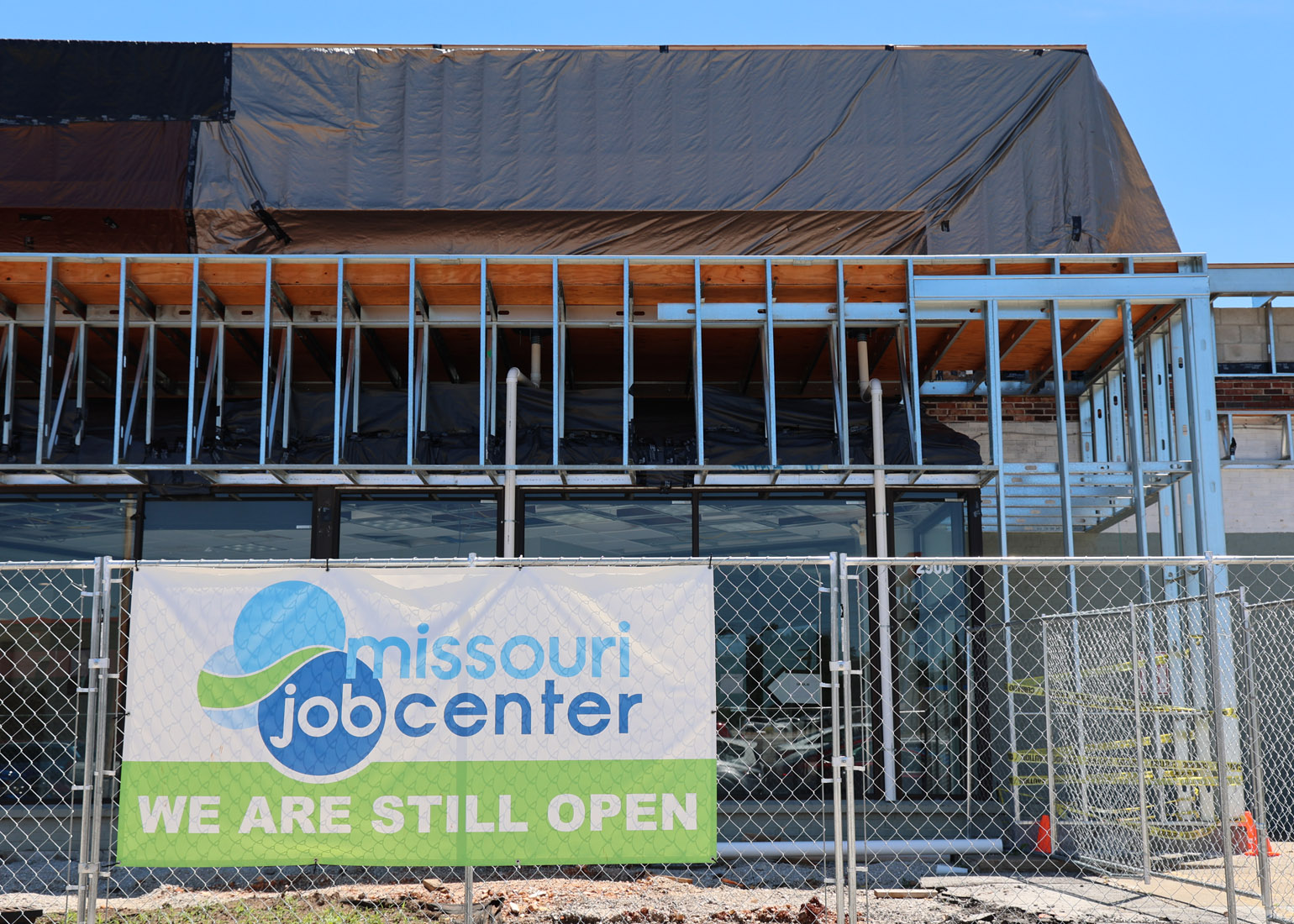
At the May 20 City Council meeting, incoming chair of the Workforce Development Board Andrea Sitzes outlined the board’s plans to reevaluate its structure, and concern with the city’s communication, particularly related to the relocation of the Missouri Job Center.
Sitzes said board members were notified of the planned relocation on the Tuesday prior to the May 20 meeting, though city officials say they provided notice to the board chair, Susan Johanson, in February.
A pair of Springfield City Council bills, both approved on June 10, provide up to $6.3 million in funding for the acquisition and renovation of a new Workforce Development building, or Missouri Job Center, near the City Governmental Plaza. The location and cost of the building have not been disclosed, as the city is yet to close on the property.
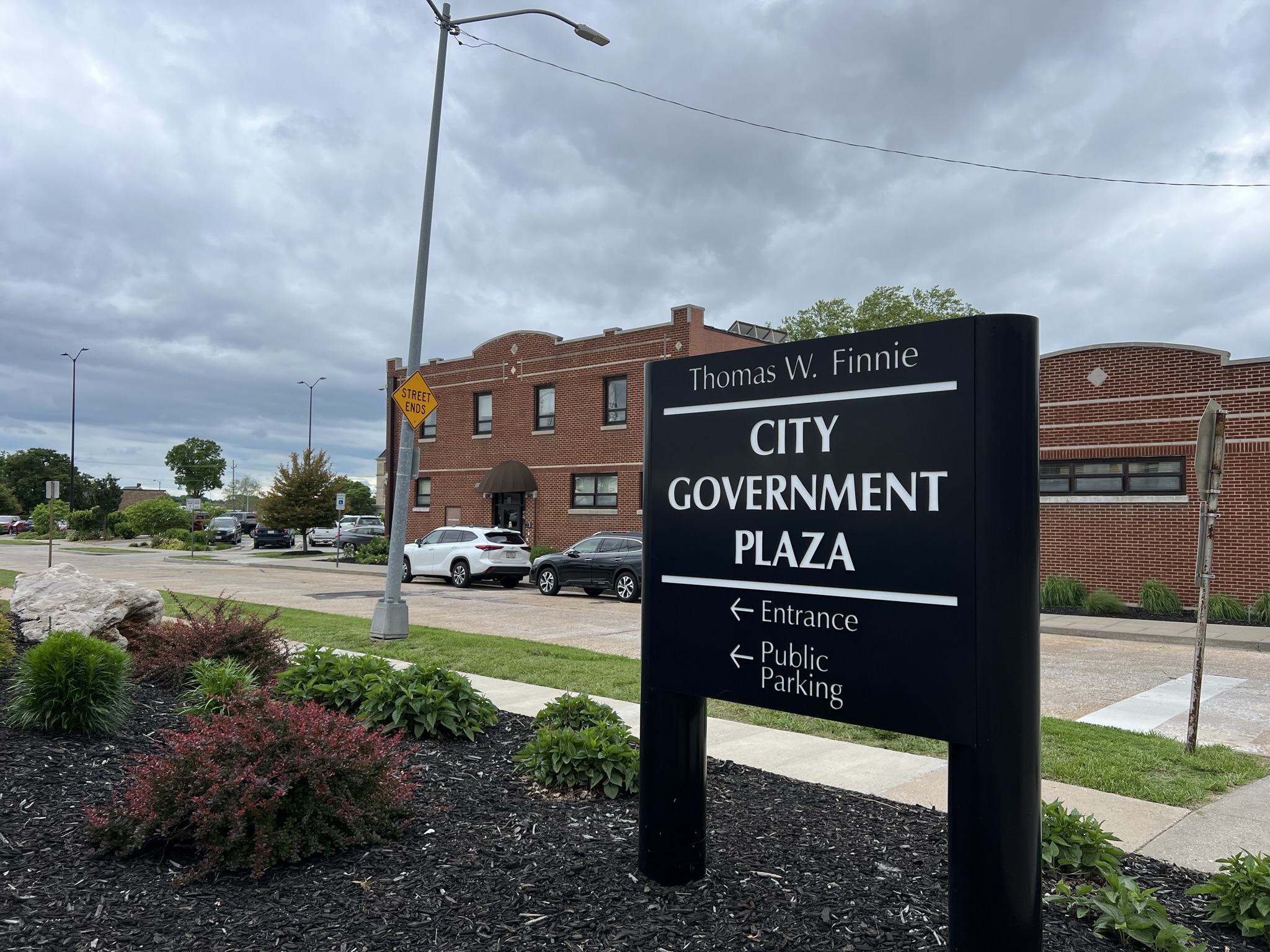
The department shares leased space with some of its partner agencies — which would be provided the opportunity to move to the new facility — on the west end of the Southern Hills Shopping Center at 2900 E. Sunshine St., with a monthly expense of $42,182.29, increasing by about $20,000 annually.
The city plans to pay down debt service associated with the cost of a new building with revenues from rental payments.
Board members have expressed concern over a potential conflict of interest in the board using WIOA funds to “benefit” the city, though city officials said the use of WIOA funds for rent paid to the city was approved by the Missouri Department of Higher Education and Workforce Development, and would benefit all partner agencies through “hundreds of thousands of dollars in savings over time” with a lower cost of rent.
“There's no difference in how the money is actually being used for building space and where it currently is,” Gage explained. “So that's where we're a little confused as to where their information came from, because it didn't take much effort on our part to get the letter that clarifies that ‘Absolutely, you can use the funds this way. It's how you've been using them, it makes sense to use them in that way.’”
Job Center relocation wasn't an isolated incident, workforce board says
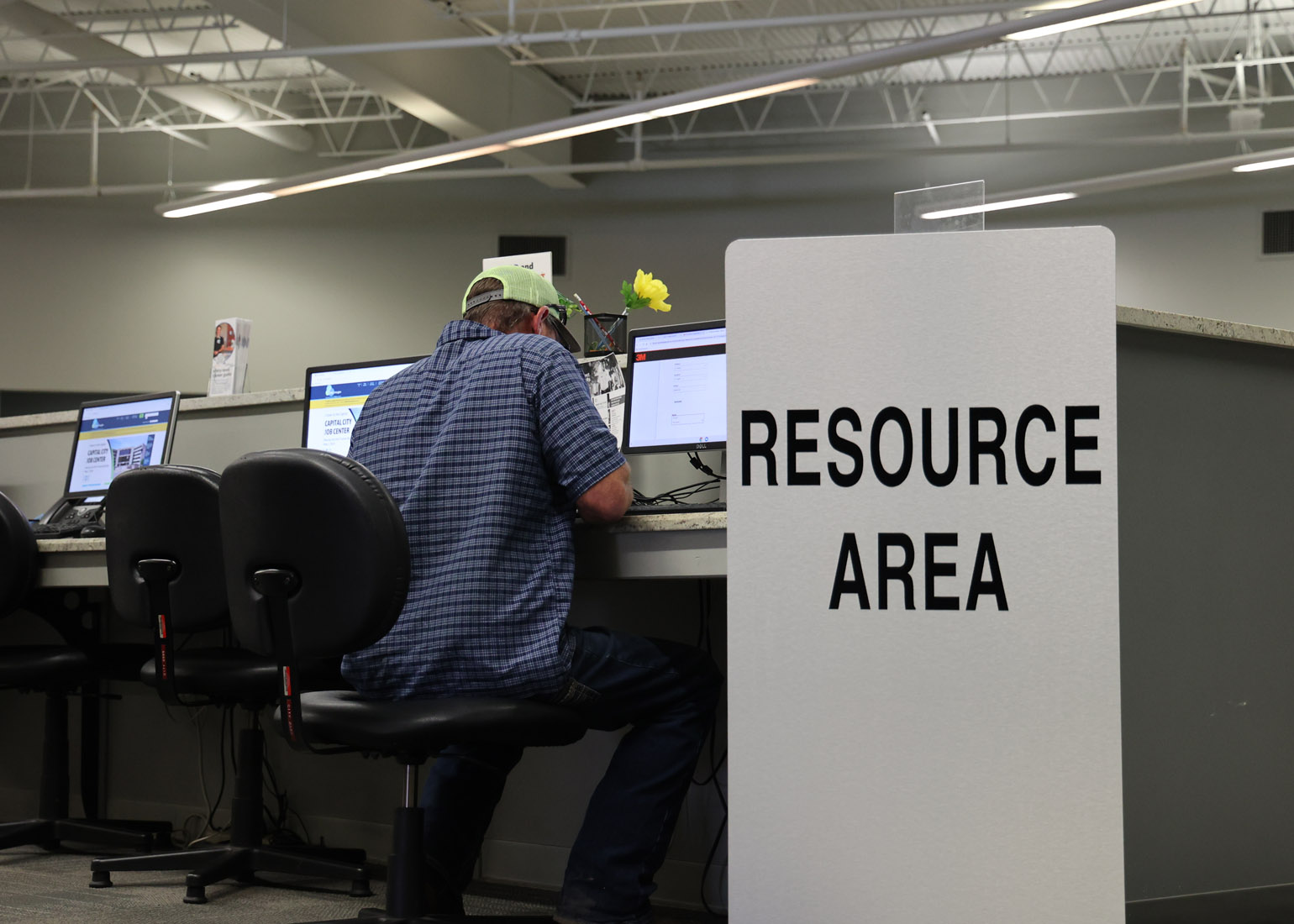
Sitzes said the board was not necessarily opposed to the new location, but hadn’t had a chance to thoroughly vet and discuss the proposed relocation with the CLEO. Current agreements do not necessitate approval from the board or CLEO to relocate the Missouri Job Center, but merely require the city to communicate the decision.
While the city's short notice of the relocation of the Missouri Job Center encapsulates the board's concern over communication, it is not “isolated” from other deliberations by the board and CLEO, Sitzes said.
“Those discussions started happening far in advance of finding out about this building,” Sitzes told the Hauxeda.
At a November 2023 retreat, the board and CLEO conducted an “introspective assessment,” from which they found “significant room for improvement” to the services the nonprofit is responsible for across the seven county region.
Following the retreat, the board and CLEO formed a task force to look at ways to improve collaboration and increase services, and later put out a request for proposals for a consultant to explore organizational efficiencies, best practices and agreements between the board and city.
Sitzes indicated that the consultant — yet to be selected from four respondents — would draft a request for proposals for administrative and one-stop services that the city provides.
Director could help with communication between city, workforce board
In a bid to salvage the city’s role as fiscal agent, the City of Springfield offered the board its financial services at no cost for a year, and at a reduced cost in subsequent years. The proposal would open up funding to allow the board to hire an executive director, who could serve as the liaison between the board and city.
Following the first year, the city would charge “what’s left over in the administrative budget” for its fiscal services, which would be a fraction of the money it presently receives from the board.
The Ozark Region is the only one of Missouri's 14 WIOA regions without an executive director, according to Schmeeckle. The board has explored hiring an executive director in the past, namely in the wake of the retirement and resignation of former Workforce Development directors Mary Ann Rojas and Sally Payne, respectively.
“This person could meet with our staff to truly make sure that we have a collaboration going forward, that we work together, that we demonstrate that the workforce development services that are being delivered are within the board's vision, all within the mission, all of that going forward,” Schmeeckle said at the June 7 meeting.
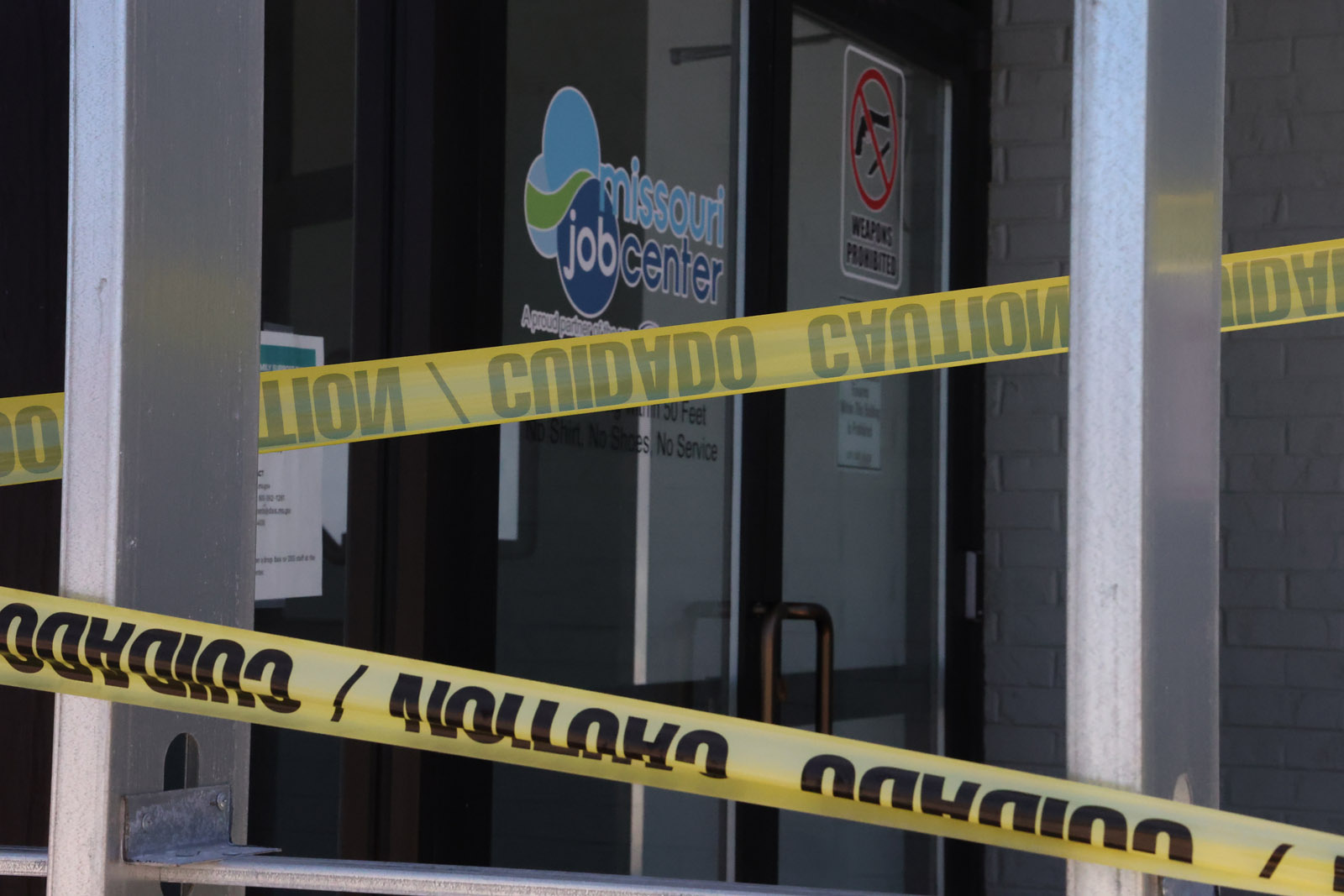
Sitzes said that hiring an executive director is “certainly one model” the board would consider in improving its services.
“What we're hoping to do through our research with the consultant is identify what other models may exist, whether that be across the state of Missouri — we know that there are several regions that may do it a little bit differently than we do — and then also in other states,” Sitzes said. “The WIOA program is a federal program, so there are lots of best practices that we hope to glean through our research.”
While pointing out that the current administrative agreement does not require the board and CLEO to consider the relocation of the Missouri Job Center, Schmeeckle said the city was open to revising that agreement to clarify guidelines and provide the board more communication.
The offer was included in a letter provided to the CLEO only minutes before the Friday meeting, after board members expressed their desire to hire an executive director at a June 5 meeting. The offer did not dissuade the group of county commissioners from removing the city as fiscal agent.
Ultimately, Gage said it’s hard to determine the real reason behind the CLEO’s decision to remove the city as fiscal agent, because CLEO's concern over the use of WIOA funds to pay rent to the city and communication issues don’t directly relate to the fiscal agent role.
Bond package approved despite concerns over debt service

The council bills providing funding for the relocation of the Missouri Job Center — $1.9 million in bonds and $4.4 million in carryover funds — were approved unanimously, but not without some concern over how the CLEO’s recent decision, and future decisions could impact the city’s debt service on those bonds.
“I just want to make sure that we have a backup plan that is pretty clear,” Springfield City Councilmember Brandon Jenson said. “I think it makes sense to locate these services at this facility. I just want to make sure that no matter what happens moving forward that we're not obligating the city in terms of future revenue that are going to have to be distributed beyond what service providers may be located there.”
Gage assured council members that the city’s removal as fiscal agent would have “no measurable impact” on the ability to make payments.
Gage estimated that the termination of other WIOA-related agreements with the workforce board and CLEO could result in a loss of up to $270,000 annually, which he said could be made up through grants, cost savings from the city's ownership of the building, rental revenues from other tenants and, as a last resort, the city’s general fund.
With future uncertain, service agreements between city, workforce board unaffected by CLEO’s decision
The CLEO will soon announce the process for selecting a new fiscal agent, according to a news release. Commissioner Dixon suggested it would likely come in the form of a public notification or request for proposals. The City of Springfield will remain the fiscal agent through September, at which point a 120-day extension approved at the June 7 meeting will expire.
Gage indicated that the city would consider responding to a selection process, depending on the expectation of the board and the terms of agreement it seeks from its fiscal agent.
“All options are still on the table,” he said.
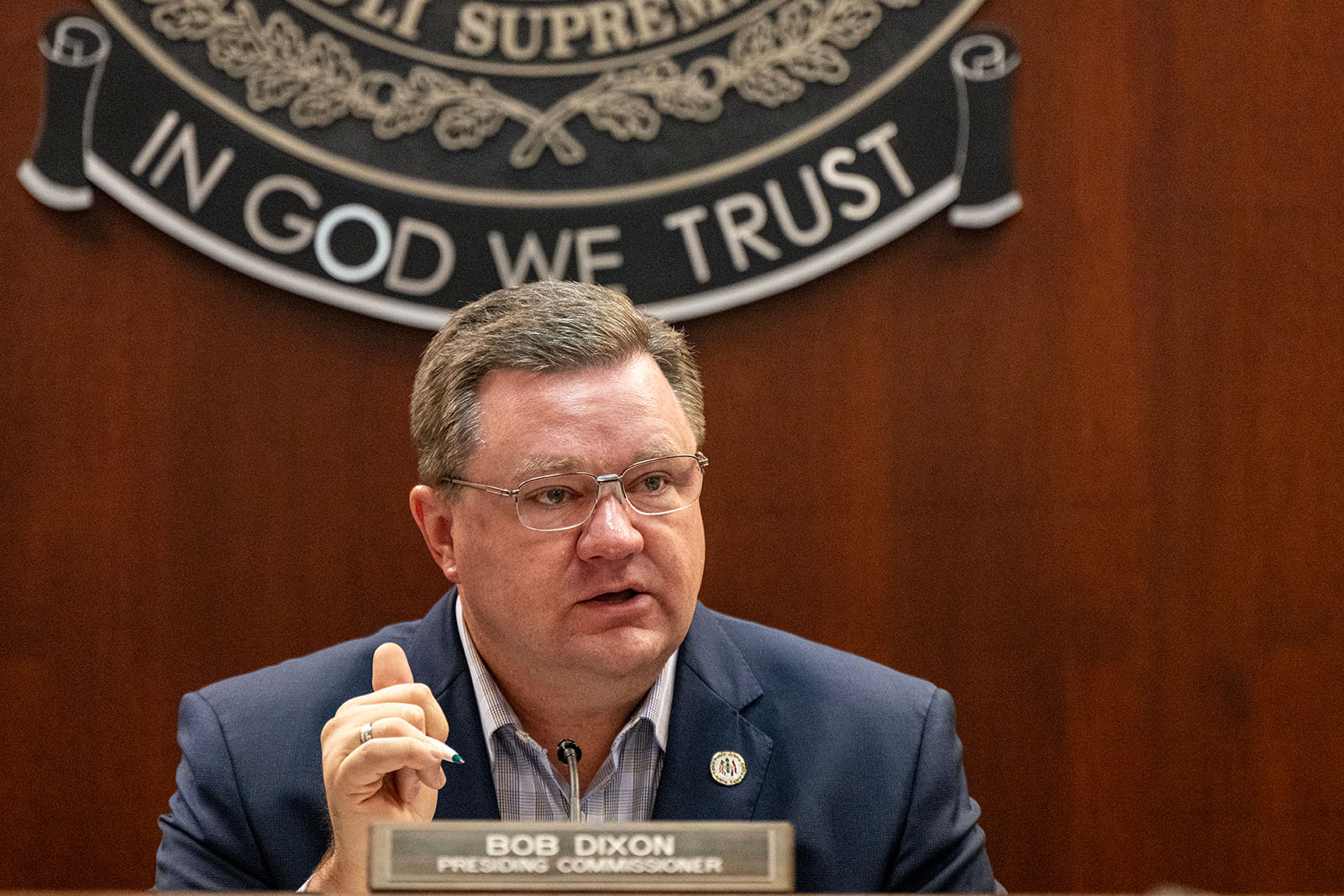
While city officials anticipate the workforce board to at least pursue revising other agreements, the CLEO could also consider changing the provider of its WIOA-funded services.
“I think the question may then becomes ‘Do they intend to take action related to any of the other program areas or the contractual areas?’” Gage said.
Schmeeckle is hopeful Workforce Development Board members review the city’s proposal ahead of an end-of-month meeting for the 2024-25 budget, and reconsider reinstating the city as fiscal agent.
Sitzes emphasized that the board's relationship with the city “has to continue,” no matter what the board and CLEO considers of the recommendations made by the consultant.
“We don't know what we want yet, we don't know what to ask for, we just knew that there were some areas that we wanted to improve,” Sitzes said. “We were going through a very measured approach in which to do that and make those decisions and we received this news and wanted to be open and transparent with the City Council about the steps that our board was taking and things that we were looking at.”
In addition to the city’s planned relocation of the Missouri Job Center, the City Council is also considering consolidating the city’s departments of Workforce Development and Economic Vitality. Schmeeckle said the merger is unrelated to the communication issues between the city and board, and would not impact the city’s ability to administer WIOA programs.

